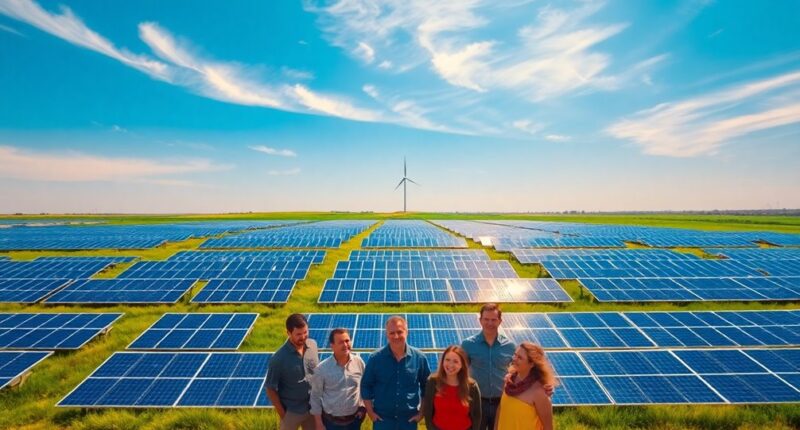You're likely noticing the buzz around solar companies lately. With a projected 75% increase in power generation by 2025, this sector is not just growing—it's transforming the energy landscape. Significant federal incentives and technological advancements are making solar more accessible and efficient. As corporations invest heavily to meet sustainability goals, the implications for the economy and the environment are profound. What does this mean for the future of energy and your role in it?

As the world shifts toward sustainable energy sources, the solar companies industry is experiencing unprecedented growth. You might've noticed that solar power generation in the U.S. is projected to skyrocket by 75%, jumping from 163 billion kWh in 2023 to a staggering 286 billion kWh by 2025. This leap illustrates a broader trend, as the solar industry has maintained an impressive average annual growth rate of 26% over the past decade.
In 2023 alone, solar energy accounted for 55% of all new electric capacity added to the grid, solidifying its status as the predominant source of new energy generation.
What's fueling this extraordinary expansion? The Inflation Reduction Act has played a significant role, boosting solar deployment projections by a remarkable 46% compared to forecasts before the Act. This governmental support is crucial for the industry's momentum, particularly as over 24 GW of new solar module manufacturing capacity came online in 2024. Solar power generation projected to increase by 75% illustrates just how rapidly the landscape is changing, making solar an exciting and viable option for energy generation.
The economic impact of the solar industry is equally impressive. In 2023, it generated over $60 billion and provided jobs for nearly 280,000 Americans across more than 10,000 companies. With federal incentives like the Investment Tax Credit (ITC) and various state-specific rebates, installing solar has become increasingly financially attractive for both individuals and corporations.
The cost of solar installations has plummeted, making it competitive with traditional energy sources, which is a game-changer for businesses looking to cut costs.
Major corporations such as Meta, Amazon, and Google are all in on this trend, investing heavily in solar to reduce their energy costs and enhance sustainability. For businesses like yours, solar energy offers long-term savings and operational resilience, making it a smart choice.
You might be wondering how technology fits into this picture. Advances in photovoltaic technologies and improvements in solar panel efficiency are driving the industry forward. Utility-scale solar power plants are becoming more common, and innovations like smart grid technologies and virtual power plants (VPPs) are boosting the efficiency of solar installations.
Battery storage technologies are also gaining traction, allowing for better integration of solar energy into the grid. Moreover, the growing interest in green hydrogen and other renewable sources is attracting significant investment, further shaping the solar landscape.
Corporate and government involvement is key to the industry's ongoing success. Fortune 500 companies are investing in solar to meet sustainability goals and comply with environmental regulations. The substantial tax credits from the Inflation Reduction Act are encouraging corporate participation, while states like Texas and California lead the way in solar installations.
Ultimately, as you explore the solar companies industry, you'll see that it's not just about energy; it's about a shift toward a more sustainable future that offers economic benefits, technological advancements, and corporate responsibility. The momentum is undeniable, and the future looks bright.









